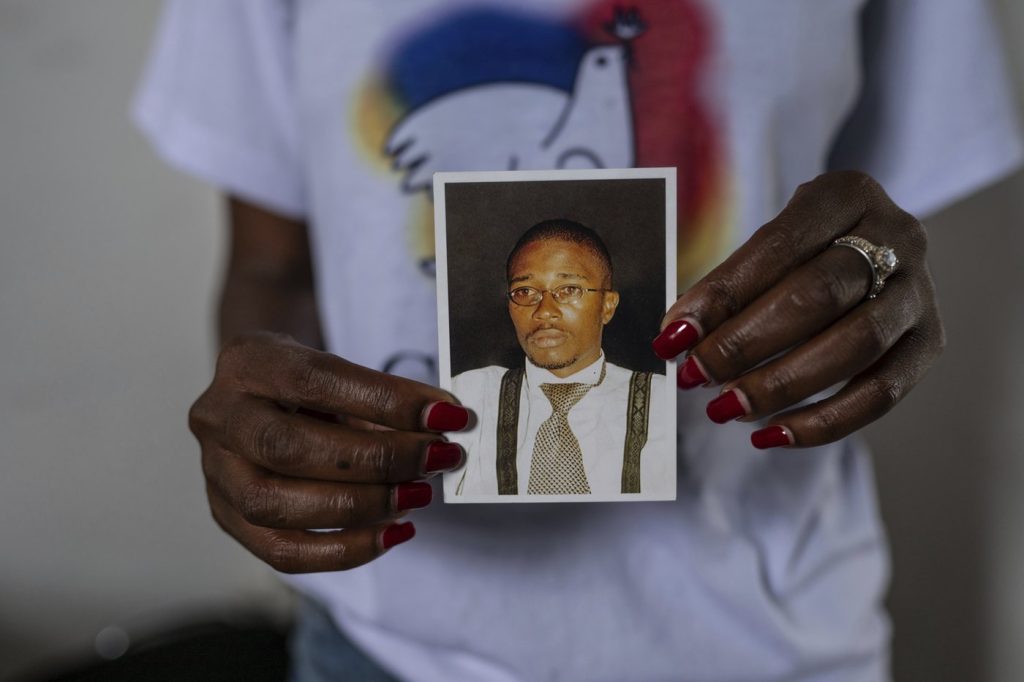ROME (AP) — On Sunday, the Vatican is beatifying Floribèrt Bwana Chui Bin Kositi, a Congolese customs worker who was murdered for refusing a bribe. This act positions him as a new model of holiness for young individuals in a nation grappling with widespread corruption. Kositi, who declined to allow spoiled rice to be distributed to impoverished communities, is celebrated as a martyr of integrity.
The beatification ceremony is being led by Cardinal Marcello Semeraro, the head of the Vatican's saint-making office, at the St. Paul Outside the Walls basilica in Rome. The event is attracting numerous Congolese pilgrims and the local Congolese Catholic community, many of whom will have a unique opportunity to attend a special audience with Pope Leo XIV the following day.
Floribèrt Bwana Chui Bin Kositi was abducted and subsequently killed in 2007 after he refused to let rancid rice from Rwanda be imported into the eastern Congo city of Goma. As a member of the Congolese government’s customs quality control office, the 26-year-old was well aware of the dangers associated with rejecting bribes offered to public officials. However, he also recognized the potential harm of allowing spoiled food to reach those in desperate need.
Aline Manani, a friend of Kositi, remarked, “On that day, those mafiosi found themselves facing a young man who, in the name of the Gospel, said 'No.' He opposed corrupt practices.” She further stated that Kositi is a significant role model for young people.
Pope Francis acknowledged Kositi as a martyr of the faith late last year, a pivotal step toward beatification and the possibility of him becoming Congo's first saint. This recognition aligns with the Pope's broader interpretation of martyrdom as a social justice issue, permitting those believed to have been killed for adhering to God's work to be considered for sainthood.
Goma Bishop Willy Ngumbi commented on the situation in the Democratic Republic of Congo, stating, “Our country almost holds the gold medal for corruption among the countries of the world. Here, corruption is truly endemic. If we could at least learn from this boy's life that we must all fight corruption, I think that would be very important.”
Last year, Transparency International ranked the Congo poorly on its corruption perception index, placing it 163rd out of 180 countries surveyed, with a low score of 20 on a scale where 0 indicates high corruption and 100 indicates a clean status.
The beatification is providing a ray of hope to Goma amidst a time of strife caused by violent conflicts between government forces and Rwanda-backed M23 rebels, which have resulted in thousands of deaths and exacerbated an ongoing humanitarian crisis.
This event has rekindled hope among the Congolese population, as corruption has long impeded the development of the country, which is home to over 100 million people. During his 2023 visit to the Democratic Republic of the Congo, Pope Francis vocally criticized the prevailing corruption issue.
While addressing a stadium full of attendees in Kinshasa, Francis noted, “Kositi could easily have turned a blind eye; nobody would have known, and he might even have benefited. But as a Christian, he prayed, thought of others, and chose honesty, rejecting the filth of corruption.”
The Rev. Francesco Tedeschi, who played a crucial role in Kositi’s sainthood case, recalled his memories of Kositi, expressing emotional reflections on his legacy and the call for the church to acknowledge “ordinary holiness” in the lives of those around us.
At Goma's Floribert Bwana Chui School of Peace, named in honor of Kositi, the school's director, Charles Kalimba, highlighted that Kositi’s beatification serves as an encouraging symbol for everyone who views him as a role model. He stated, “It’s a lesson for every generation, for the next generation, for the present generation and for all people.” Kalimba emphasized the necessity of fighting against the pervasive culture of corruption in the country.
The martyr designation for Kositi means he is not required to have a miracle attributed to his intercession for beatification, thereby expediting his process toward becoming a saint. However, the Vatican still needs to confirm a miracle for his eventual canonization, a process that may take several years.











